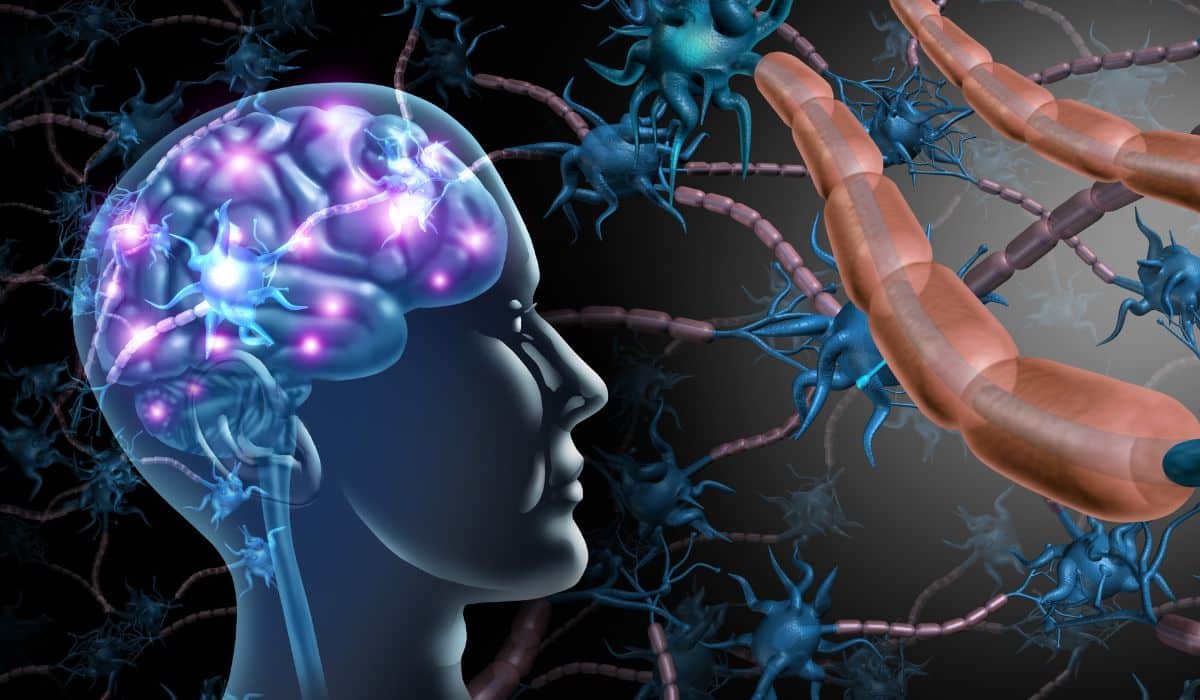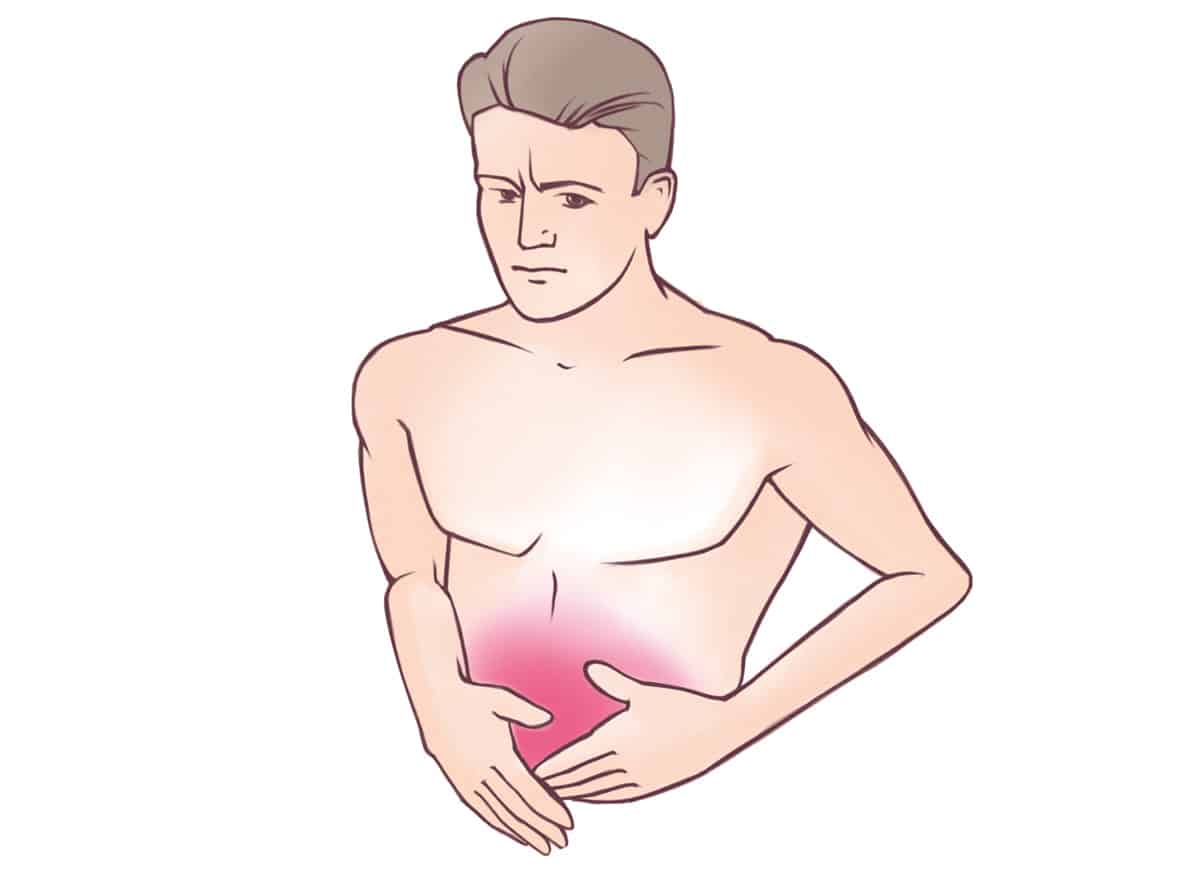
The Most Important Nerve you Didn’t Know you Had
Have you ever wondered why some people feel full after eating a small amount of food and other people are still hungry until they eat a big serving?
The answer might be in the sensitivity of their vagus nerve. The vagus nerve is the nerve that connects your gut to your brain, and it’s an important part of the parasympathetic nervous system (the “rest and digest” response, basically the opposite of “fight or flight”).
- Signals running up the vagus nerve from the gut to the brain affect your perception of hunger and fullness, your mood and stress levels, and the activation of your inflammatory stress response.
- Signals running down the vagus nerve from the brain to the gut affect digestion, secretion of digestive enzymes, and gastrointestinal motility (that’s a fancy word for where you are on the scale from constipation to diarrhea).
It’s a really important pathway, and vagus nerve activation is involved in obesity, gastrointestinal diseases, cardiovascular diseases, mood disorders like depression, and all kinds of other chronic health problems. Here’s a look at why the vagus nerve is so important, and how your diet can improve your health by affecting vagal nerve signals from the gut.
The Vagus Nerve Controls How Hungry you Feel
One really important type of communication that runs up and down the vagus nerve is hunger and fullness signals. For example…
- The physical bulk of food in the stomach sends satiety signals up the vagus nerve to your brain. This is how your brain knows to stop feeling hungry after a meal.
- Nutrient sensing and neurotransmitters produced in the gut, like serotonin and ghrelin, can also send hunger and fullness signals up the vagus nerve to the brain.
Obesity is associated with a lower sensitivity of the vagus nerve to fullness signals, and there’s a lot of evidence that this is caused specifically by diet. Obesity-inducing diets can actually alter the sensitivity of the vagus nerve to fullness signals, so it takes more food for your brain to get the “full now” signal. And just like you might expect, stimulating the vagus nerve (to “turn up the volume” on the satiety signal) tends to cause weight loss in experimental animals – although it’s worth noting that studies in humans have mixed results.
The Vagus Nerve and Other Health Issues
Hunger is one big reason why the vagus nerve is important. But if you take a dive into PubMed, you’ll find that vagus nerve dysfunction is actually associated with all kinds of other problems. That’s because the vagus nerve also helps to regulate inflammation, and inflammation is involved in just about every chronic disease. Stimulating vagus nerve signals to the brain is anti-inflammatory – it signals the brain to turn down the stress response and reduce the production of inflammatory cytokines.

The effects here are a little hard to untangle because the vagus nerve is a two-way street and there are a lot of complicated feedback loops between the brain and the gut (remember that the vagus nerve runs both ways!). But for people who just care about improving their health, the exact mechanism might be less important than the results, which are definitely impressive:
- Vagus nerve control of inflammation affects cardiovascular health, and vagus nerve stimulation may help prevent cardiovascular events.
- Vagus nerve signaling is thrown off in patients with Crohn’s Disease (a form of Inflammatory Bowel Disease), and one small, preliminary study found that vagal nerve stimulation helps treat the symptoms.
- The vagus nerve may also be involved in Irritable Bowel Syndrome, and vagal stimulation might be helpful for reducing IBS pain.
- This study is really interesting: treating diabetes-prone rats with vagal nerve stimulation prevents both depression and insulin resistance. That’s a huge piece of evidence that depression and diabetes might both have roots in the gut.
If a bad diet is affecting the sensitivity of your vagus nerve, it could also have secondhand effects on all these diseases. This could be one reason why gut health is such a big player in overall health.
Care and Feeding of your Vagus Nerve
So far, we know that an obesogenic “cafeteria diet” (high-fat, high-carb junk food) reduces the sensitivity of the vagus nerve, and that vagus nerve stimulation counteracts that, with big benefits for weight…and for just about everything else. Unfortunately, the “vagal nerve stimulation” in these studies isn’t something you can do at home; it’s a device that the subjects got surgically implanted in their bodies.
But if a lousy diet can reduce the sensitivity of the vagus nerve, maybe a good diet can help restore it. Other than "don't eat a junk-food diet," here's a little bit more specific research.
This study found that dietary fat reduced inflammation through its effects on the vagus nerve. The authors concluded that “high-fat…nutrition is potentially therapeutic in various inflammatory disorders such as sepsis and inflammatory bowel disease (IBD) characterized by an inflammatory response in which…intestinal barrier function is impaired.”
That’s backed up by the connection between a ketogenic (very high-fat, low-carb) diet and vagal nerve stimulation as two effective therapies for treatment-resistant epilepsy. It’s possible that a ketogenic diet have some of its hunger-suppressing, anti-inflammatory effects through stimulating the vagus nerve.
This study also found that a probiotic (Lactobacillus casei strain Shirota) activated the vagus nerve. The probiotic modified the gut-to-brain stress signaling in students taking a stressful exam and suppressed the release of the stress hormone cortisol. That suggests that probiotics might be able to break the gut-brain-gut-brain feedback cycle up and down the vagus nerve where psychological stress causes gut problems, which send more hormonal stress signals to the brain, which cause more gut problems.
Aerobic exercise may also be helpful.
For instant gratification, you can also do your own vagal nerve stimulation using the Valsalva maneuver. Sit down, because it can make you a little dizzy. Take a deep breath, and then close your mouth and pinch your nose shut so that no air can escape. Then pretend like you’re trying to breathe out, but without opening your nose or mouth – you should feel the pressure from the air. Keep doing this for 15-20 seconds, and then let the air out and breathe normally. (If you do any weightlifting, this is the type of breath-holding you do to stabilize your spine during heavy squats and deadlifts.)
The Valsalva maneuver doesn’t have long-term effects, but it might be helpful for an immediate situation, like right before a test or in the middle of a stressful commute.
That’s not a lot to go on – there just aren’t many studies on diet and the vagus nerve. But it’s something to start with, and it does back up the important ways that the gut, the brain, and the rest of your body are all connected. Knowing about the vagus nerve helps to explain why gut health, mental health, and whole-body health are so tangled up with each other, and why good gut health is so important for things way beyond digestion.





Leave a Reply